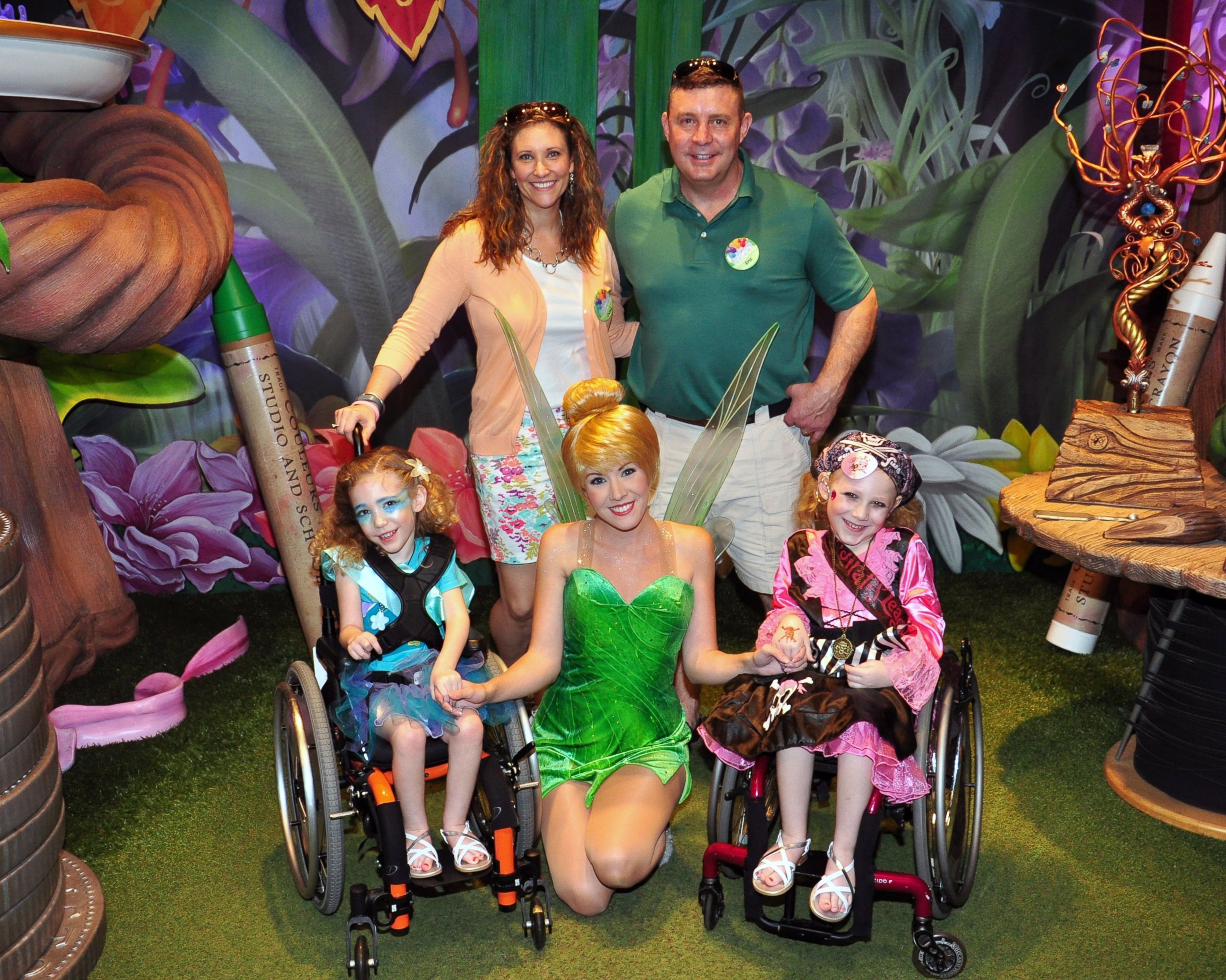How Two Young Sisters Cope With a Rare Muscle Wasting Disease
SMA affects one in every 6,000 to 10,000 children.
— -- Around the time of Brielle Kennedy's first birthday, her parents, Sarah and Eric, noticed that her physical development was a little slow.
"Our pediatrician told us not to worry at first but when she still wasn't walking at 16 months, he sent us to a specialist,” Sarah Kennedy recalled.
The toddler was diagnosed with type II spinal muscular atrophy, a rare condition that is part of a group of childhood diseases that cause the muscles of young children to waste away. SMA, as the disease is called in shorthand, occurs when there is a missing "survival neuron gene" and the body cannot produce the necessary proteins to build up muscle.
Their daughter would never walk, doctors told the Kennedys. She would have trouble holding up her head and neck and would likely need extensive medical treatment, including physical therapy and occupational therapy for the rest of her life, doctors told the couple.

The diagnosis came soon after Kennedy gave birth to her second daughter, Brooke, and just five days before her husband, a physician’s assistant with the Army, was about to be deployed to Afghanistan for a year. Shortly after he left, Brooke was also diagnosed with SMA.
“It was a really rough time,” Kennedy said. “But we tried to remain hopeful and learn everything we could about the disease.”
SMA affects one in every 6,000 to 10,000 children, the Kennedys soon found out. There is no known cure or treatment.
Doctors explained that when both parents are carriers for SMA there is a 25 percent chance their child will have the disease.
The Kennedys did have some good luck. Eric Kennedy met another soldier who knew a physician at one the top SMA programs in the country at Boston Children’s Hospital. They were invited to fly from their home in Michigan with their older daughter to attend a clinic.
“I spent two days soaking up every bit of information I could while Brielle was seen by every doctor imaginable related to the disease,” Kennedy said, adding that the experience helped lift the family’s spirits immensely.
The younger daughter also caught a break. She was entered into clinical trial for a medication given to infants diagnosed with SMA but who don’t yet show symptoms. While it hasn’t stopped the progression of the disease, the Kennedys say it has slowed it significantly.
The Kennedys said they are hopeful about several other new trials in the works, including one that is a possible SMA cure. As they hope and pray for a medical breakthrough, the Kennedys said that Brooke and Brielle lead full, happy lives with lots of friends and a love of Disney princesses and animals.

Last year, the family worked with their congressman, Rep. Fred Upton, and the National Organization of Rare Diseases to help pass a new law that funds medical research for rare and devastating childhood diseases. They say that focusing on the positive and finding support is key.

“To other parents in a similar situation I would say take one day at a time,” Kennedy said. “Learn as much as you can and connect with other families who are dealing with the same disease so that you can really learn more about what is to come.”
Rare Disease Tweet Chat Today at 1 p.m. ET
Are you or someone you know living with a rare disease that lacks research and funding? Come talk about it with patients and experts on today’s rare disease tweet chat at 1 p.m. ET. Here’s how to join.



